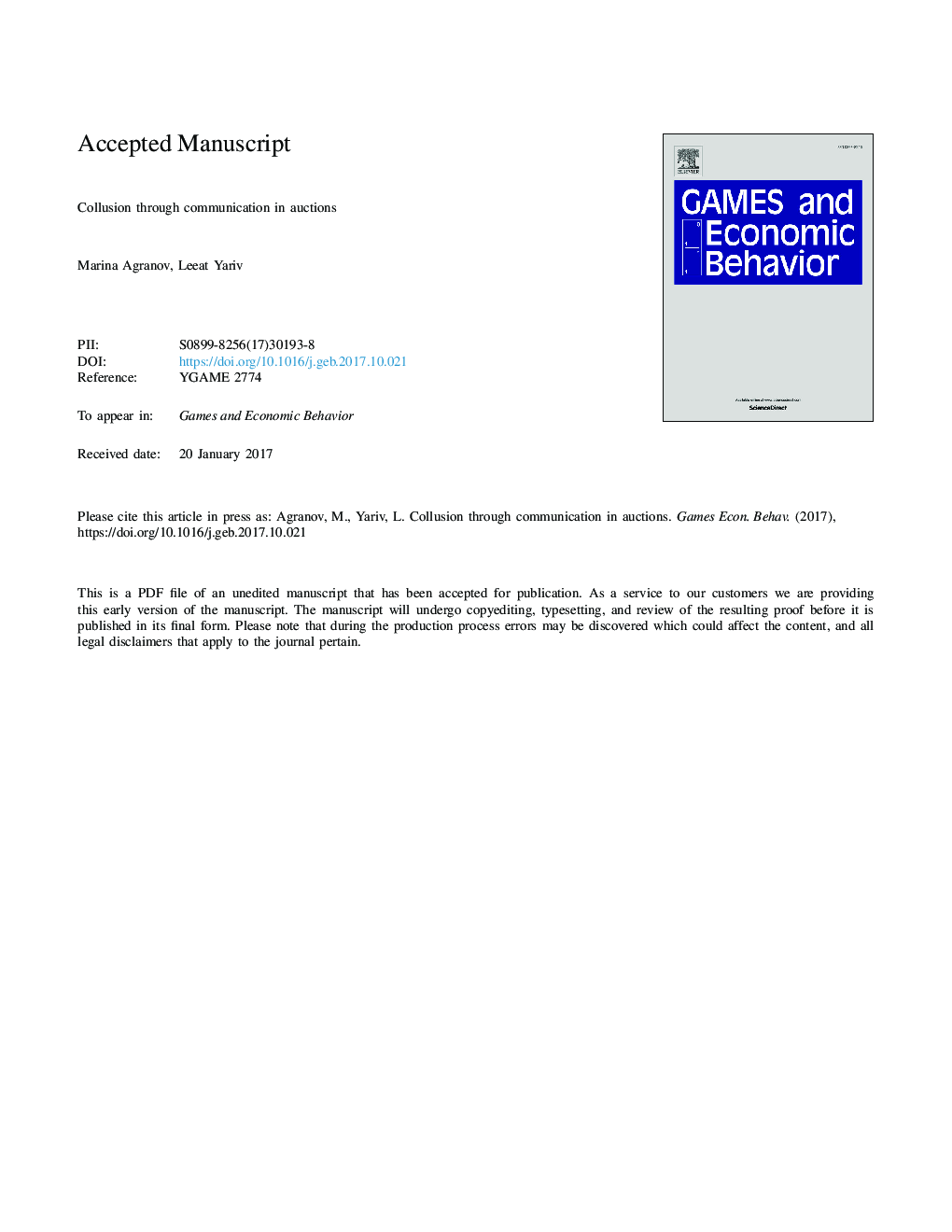| Article ID | Journal | Published Year | Pages | File Type |
|---|---|---|---|---|
| 7352936 | Games and Economic Behavior | 2018 | 35 Pages |
Abstract
We study the extent to which communication can serve as a collusion device in one-shot first- and second-price sealed-bid auctions. In an array of laboratory experiments we vary the amount of interactions (communication and/or transfers without commitment) available to bidders. We find that communication alone leads to statistically significant but limited price drops. When, in addition, bidders can exchange transfers, revenues decline substantially, with over 70% of our experimental auctions culminating in the object being sold for approximately the minimal price. Furthermore, the effects of communication and transfers are similar across auction formats. We contrast these results with those generated in repeated auctions. By and large, repeated auctions yield lower collusion and lower efficiency levels.
Related Topics
Social Sciences and Humanities
Economics, Econometrics and Finance
Economics and Econometrics
Authors
Marina Agranov, Leeat Yariv,
